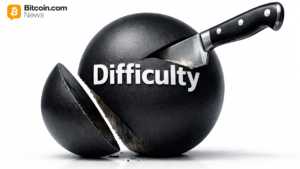Nigeria Opens Doors to Regulated Stablecoin Businesses

Nigeria’s Securities and Exchange Commission (SEC) plans to open the market to regulated stablecoin businesses, marking a shift from the regulator’s previous restrictions.
Stablecoins now have a clear legal framework, with issuers required to comply with firm SEC rules under the Investment and Securities Act 2025.
Clear Regulatory Path for Stablecoin Companies
The SEC now recognizes stablecoins as regulated securities. Under the Investment and Securities Act 2025, stablecoin issuers must meet strict compliance, licensing, and reserve requirements.
This policy gives stablecoin firms a defined path in Africa’s largest economy, positioning Lagos as a potential digital asset hub. The SEC’s approach supports responsible growth while establishing strong protections for Nigerian consumers and investors.
Previously, Nigerian authorities maintained a strict approach to crypto-related businesses. For instance, Nigeria sued crypto exchange Binance earlier this year for $81.5 billion, citing tax evasion, money laundering, and foreign exchange violations.
Nevertheless, SEC Director-General Emomotimi Agama now states that Nigeria is “open to stablecoin businesses,” viewing regulated digital assets as key to the country’s future.
The SEC has officially welcomed these providers into its framework, prioritizing oversight and market stability over past uncertainty.
“My message today is clear: Nigeria is open for stablecoin business, but on terms that protect our markets and empower Nigerians,” Agama said at the Nigeria stablecoin summit in Lagos.
With the SEC taking the lead, the Central Bank of Nigeria (CBN) now focuses mainly on payment matters. Therefore, the SEC has assumed primary responsibility for stablecoin regulation.
“Across the continent, freelancers, traders, and businesses are increasingly opting for stablecoin payments to hedge against volatility, a trend significantly amplified by the naira’s fluctuations, which have driven exponential growth in demand for dollar-backed digital assets,” Agama added.
Accelerated Regulatory Incubation Program Fuels Innovation
In a move to spur innovation, the SEC created the Accelerated Regulatory Incubation Program (ARIP). This “sandbox” allows digital asset providers—including stablecoin firms—to test offerings under SEC supervision.
With this approach, the SEC monitors risks and ensures anti-money laundering (AML) and know-your-customer (KYC) compliance, while supporting new ideas.
Only firms meeting these tough standards are permitted long-term operation. This balance is crucial for protecting investors and market integrity. The program also signals the government’s commitment to building a trusted digital finance sector, rather than banning crypto activity entirely.
Furthermore, the regulatory sandbox model mirrors global best practices, encouraging growth while keeping oversight firm.
The SEC’s director-general envisions Lagos as the “stablecoin hub of the Global South,” aiming to position Nigeria as a leader in African cross-border trade using digital assets. As stablecoin adoption grows, payment systems could transform, costs may drop, and financial access is expected to rise across the continent.
Disclaimer
In adherence to the Trust Project guidelines, BeInCrypto is committed to unbiased, transparent reporting. This news article aims to provide accurate, timely information. However, readers are advised to verify facts independently and consult with a professional before making any decisions based on this content. Please note that our Terms and Conditions, Privacy Policy, and Disclaimers have been updated.















